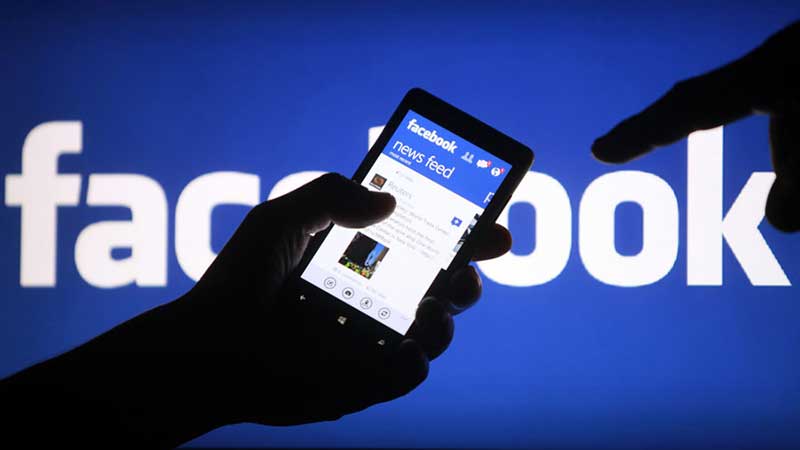- Social networking remains key focus area
- Messaging is vital for the future of Facebook
- Facebook is fast becoming the go-to destination for personal videos
- Zuckerberg believes in the future of virtual reality
- Creating an entirely different user experience with augmented reality
- The role of artificial intelligence and chatbots
- “Half the world is not enough”: bringing the Internet to underserved areas
- Dealing with the issue of fake news
Facebook as we know it today was very different just a couple of years ago. What started as a single website and an app was never thought to become profitable. However, Facebook currently has over 1.71 billion active monthly users, and that number is growing every day. But knowing that it would be foolish to expect long term prosperity and growth for Facebook merely as a social network for people to keep in touch, Zuckerberg has expanded his empire to include video, messaging as well as virtual reality. All of Facebook’s moves have been aimed at providing new ways to keep the popular social platform relevant and growing. During Facebook’s annual developer conference F8, Zuckerberg spoke about his plans for the future.
In order to grow Facebook and its ‘secondary’ services like WhatsApp (1 billion monthly users), Facebook’s homegrown Messenger (also 1 billion users) and Instagram (over 500 million users), Zuckerberg is focusing on three major technologies. He believes that virtual reality will be critical for the way in which people connect in the future. Therefore, in March 2014, Zuckerberg acquired groundbreaking VR company Oculus VR. He also wants to bring the Internet to the over four billion people who are still not connected, and he is making great strides towards turning these plans into reality. Thirdly, he wants to develop advanced artificial intelligence in order for Facebook to understand what users find most important. Apart from these three main technologies, there are a number of other key areas Zuckerberg will be focusing on in the next few years, such as how to deal with the increasingly serious problem of fake news.
Social networking remains key focus area
The number of social networks continues to grow worldwide, and people can choose from an ever increasing number of platforms. We also tend to dedicate more and more time to social networking. A whopping 33% of our time, to be exact. Even with the rapid increase of newer social networks such as Instagram, Facebook still dominates the social network space worldwide, with the exception of Russia, China and some other countries. Social networking was the foundation of this year’s F8 keynote address, even though Zuckerberg talked at length about many other future services and apps. The Facebook founder believes social networking is the best way for people from all corners of the globe to connect with each other as well as to consume news, video and other Internet based content. The social network platform also makes for a formidable marketing space for companies and organisations wanting to sell services and products. Facebook is also implementing new features such as a quote sharing tool which enables users to easily share a couple of lines from an eBook or an article, directly into a Facebook post. This eliminates the need for copying and pasting as it works with webpages and apps directly. Another new tool is the ‘save to Facebook’ button that publishers can add to their articles or websites. It allows readers to save things they find on the Internet — and save them for viewing later, on Facebook.

Messaging is vital for the future of Facebook
Messaging is vital for the future of Facebook and it isn’t going anywhere anytime soon. Zuckerberg has big plans for the two largest messaging services in the world: WhatsApp and Messenger. He has demonstrated a clear vision in terms of personal privacy with WhatsApp’s end-to-end encryption and looking at the popularity of Facebook Messenger, it is clear to see that people enjoy communicating via this platform. Text messaging seems to still be the gold standard and it looks like we’re not in a hurry to abandon this method of communication. Users will always tend to gravitate to the best, richest experience, but text messaging is the backbone of our mobile experience. Until alternative services become more relevant to smartphone users, messaging is here to stay. In June this year, Facebook updated Messenger with the ability to include SMS messages, incorporating all the user’s text messages conveniently into one app, eliminating the need to switch between apps and windows. Messenger not only combines all chats into one window, it also includes all emoticons and GIFs and offers the option to send location information, stickers and voice clips, all via a text message.
Facebook is fast becoming the go-to destination for personal videos
In order to compete with YouTube as well as Twitter’s Periscope, for many years, Facebook has been encouraging users to upload their video content. Since the launch of their ‘Facebook Live’ feature, Facebook has seen a significant increase in video sharing on the platform and is hoping that it will become the destination of choice for video content. With an estimated two trillion video views compared to the 3 trillion YouTube videos viewed in 2015, Facebook is set to become an even stronger rival than previously expected. One of Facebook’s advantages over YouTube is that the viewers are logged in. This means that the company can access a much larger pool of personalised data. Zuckerberg is probably right when he says that video is the future for content.
Zuckerberg believes in the future of virtual reality
Zuckerberg believes in the future of virtual reality, as can be seen from Facebook’s acquisition of Oculus VR. Once the technology becomes accessible to the masses, the Oculus Rift combined with Facebook’s 360-degree video support will provide Facebook with an interesting opportunity to be at the centre of it all. According to Zuckerberg, VR has the potential to be the most social of all platforms. In the future, we will interact with virtual reality all the time. It will fit naturally into our day to day lives, whether we use our glasses, our phones or new types of devices we can’t even dream up today.
Creating an entirely different user experience with augmented reality
Pokémon Go and Snapchat are how Zuckerberg envisages augmented reality to become mainstream, not HoloLens and Magic Leap with their expensive, weird and cumbersome glasses or headsets that hardly anyone owns. Facebook has indicated to be investing heavily in augmented reality, creating products that overlay digital, Internet-based elements onto the real world. This will create a user experience unlike any other before. The company has already acquired Masquerade, which is written as MSQRD, an app that lets users add animated selfie filters to their videos, similar to those of Snapchat. Zuckerberg has announced further integration with MSQRD, which people can now also use to go Live on Facebook. Zuckerberg said on various occasions that augmented reality plays a significant role in their long-term roadmap, with their next step likely being rolling out a variety of apps that augment videos that users share on the Facebook platform.
The role of artificial intelligence and chatbots
At the F8 keynote address, Zuckerberg made it clear that AI plays an important role in the future of Facebook and its users as well as in the actual operations of the company. He mentioned the Facebook Messenger chatbot that allows people to communicate with intelligent machines that can actually respond to questions and carry out tasks. Facebook and the secondary applications already make use of artificial intelligence. The ‘Moments’ app, for instance, makes use of facial recognition technology. Newsfeed uses artificial intelligence to curate what the user sees and Facebook Messenger uses AI to filter spam. Then there’s Accessibility, the app that makes use of AI to interpret images for the visually impaired.
“Half the world is not enough”: bringing the Internet to underserved areas
Another focus area is that of bringing the Internet to the underserved parts of the world. Zuckerberg plans to beam the Internet to disparate areas, using various kinds of contraptions, including satellites, lasers and wireless antennas. Facebook’s first Internet drone Aquila, made from carbon fibre and topping the wingspan of a 737, first took flight in july of this year, to gather data on the autopilot system, the motors, the batteries and the radios of the drone. Of course the aim is to help the world communicate, but also to expand Facebook’s reach – furthering their own ends. Zuckerberg’s aim is to offer the blueprints for its drones for free, so that Internet service providers as well as local governments can create new ways of getting the Internet – and Facebook – to remote areas.
Dealing with the issue of fake news
In August 2016, Facebook laid off human news curators in the ‘trending topics’ section and, instead, left algorithms in charge of automating trending topics. The reason for this decision was the accusation that some of the employees had been biased against certain news outlets. The problem is that, unless the algorithms are monitored by humans, this can lead and did in fact lead to skewed results. Shortly after the human news curators were removed, the ‘trending topics’ section started featuring fake news stories, including entirely fabricated reports, particularly during the height of the US presidential election campaign. Many people are of the opinion that these unfortunate events influenced the US election results, putting pressure on social media sites to find solutions for this problem.
Facebook plans to be more proactive when it comes to the identification and removal of fake news from user’s newsfeeds. A few of the potential measures include adding warnings to stories that were flagged inaccurate, improving the accuracy of ‘related articles’ suggestions, working with more independent fact-checking companies, preventing fake news companies from promoting their content and building improved algorithms in order to better detect fake stories. New features added are the option to flag or dispute fake news stories, which are then sent to independent fact-checking companies. Zuckerberg said that they will have to walk a fine line between not infringing on free speech and personal opinions and policing the newsfeeds for fake news. Furthermore, Facebook is looking into warning users before they share a potentially fake story and penalising websites that try to mislead readers into thinking they are a credible news source or major publisher.




